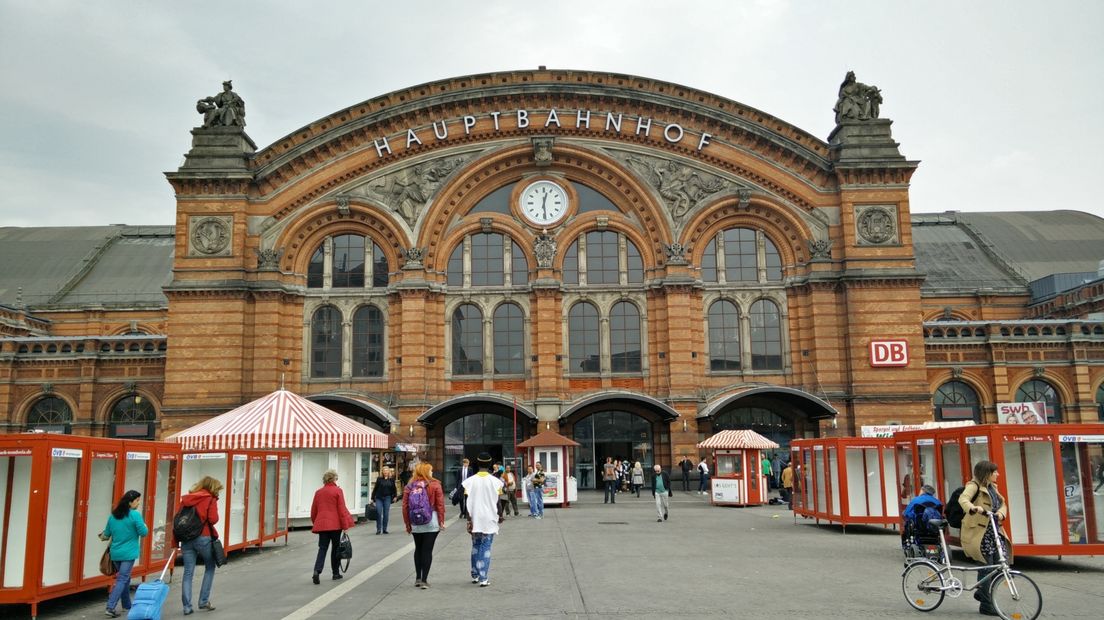An example of an “archipelago-city” that has managed to preserve its green belt, Rennes is building higher and higher to accommodate its new arrivals. But the pace of the works arouses the opposition of collectives of inhabitants who denounce a “frantic urbanization” to the detriment of the living environment.
“It’s not New York here!” », « No to the infernal tower!«
« It’s not New York here! », « No to the infernal tower!“. At the entrance to Rennes, a dozen banners hung on the facades of small houses express the exasperation of the inhabitants at the arrival of a 17-storey tower. ” Welcoming people, we have nothing against it, what bothers us is the height, we are no longer reasonable“, worries Benjamin Hubert, member of the collective “L’Enchanteur désenchanté”.
Further east, another collective, “See the sky in Rennes”, is trying to “bring down” a 15-storey building project. ” We build what we want where we want without consultation, like in the 1960s. People are terrified by so much concrete, with houses falling like hot cakes“, gets carried away Philippe, resident.
Urban densification and traffic jams
Some residents also complain about traffic jams. ” I no longer recognize the city on a human scale where I was born. There is no more fluidity in transport, and tensions are rising between the inhabitants“, Judge Françoise, 44, member of the Coudurr collective (united collective for reasoned urban densification in Rennes). He calls for a break from projects “disfiguring neighborhoods” and a public debate on the “crazy growth of the metropolis”.
According to INSEE, the Rennes metropolis has experienced “strong demographic growth” for 30 years, and should count 100,000 additional inhabitants in 2040. Faced with these forecasts and the 22,000 requests for social housing pending, the metropolis is planning 30,000 new housing units by 2028.
« The real question is not to say + we need 30,000 housing units + but to know how far we can densify a city without making it impossible to live in“, asks Jean-Pierre Renault, president of the association ” Friends of Rennes heritage« .
Rennes is developing at full speed
« Rennes is also the life of its neighborhoods with a large suburban fabric, where a certain nonchalance reigns. But when the city is built on itself at full speed, we can make mistakes and not always respect harmony with the environment.“, continues this architect, who fears a “ monotony of building sizes ” and an ” loss of bearings ” inhabitants.
According to Alain Bénesteau, director of theAudiar, the Rennes urban planning agency, the Rennes conurbation remains half as dense as its Nantes cousin. ” The phenomenon of living apart, with separations and the departure of students from the parental home, but also the aging of the population, mean that we need more housing with an equal population“, he explains.
Added to this are dynamic demography and a positive migratory balance due to the attractiveness of the city, which combines low unemployment and proximity to the coast and Paris thanks to the TGV.
« Out of 5,000 new annual inhabitants, 2,800 come from the natural balance“, insists Marc Hervé, first deputy PS for town planning, recalling that the densification concerns “ a marginal surface, but very visible because on the main roads« .
« It is first of all the inhabitants of Rennes who must be housed, because the inhabitants of the Ile-de-France region only represent 10% of real estate transactions“, assures the chosen one. He recognizes that the vertical development of the city “can constitute a trauma“. In order to improve consultation, a charter now encourages developers to inform the population before submitting the building permit. ” We try to satisfy some of the demands“, assures Marc Hervé.
Faced with the rise in real estate prices in Rennes – +11% in one year in the old sector – there is no question, however, of stopping building. ” Everyone must be able to find housing, especially those on low incomes, because we need all trades“, warns Jean-Yves Chapuis, former town planning assistant.
For Ana Sohier, ex-elected UDB (Breton Democratic Union, autonomists) for heritage, “ we must re-examine the concept of metropolises”. « We concentrate, then we complain about the densification. Today the question arises of better distributing economic activity to better distribute the inhabitants“, she argues.
–

